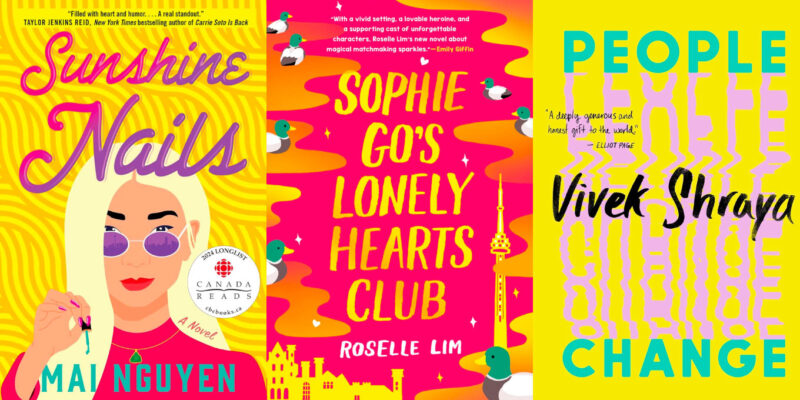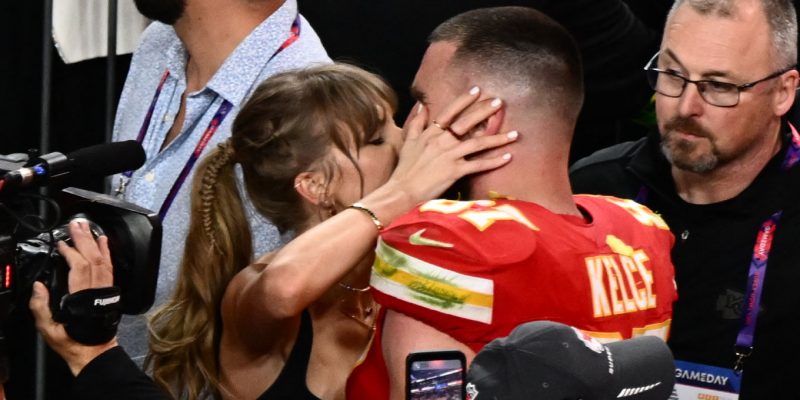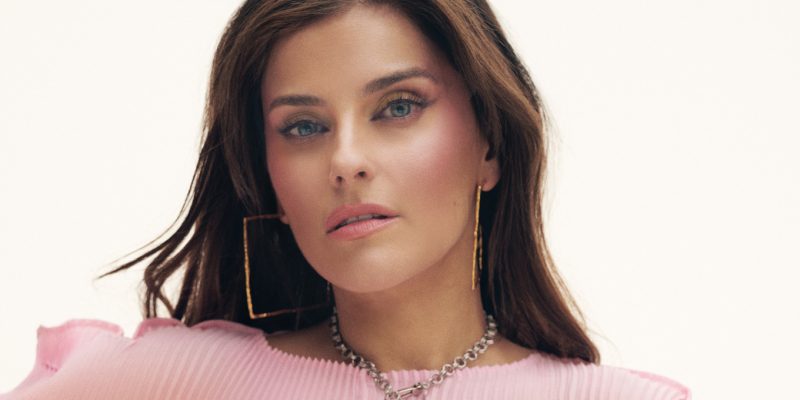Movies & TV
Saltburn Director Emerald Fennell Wants to Make You Feel
The Oscar winner’s highly anticipated second film stars Barry Keoghan and Jacob Elordi, and hits theatres on November 22.
by : Patricia Karounos- Nov 20th, 2023
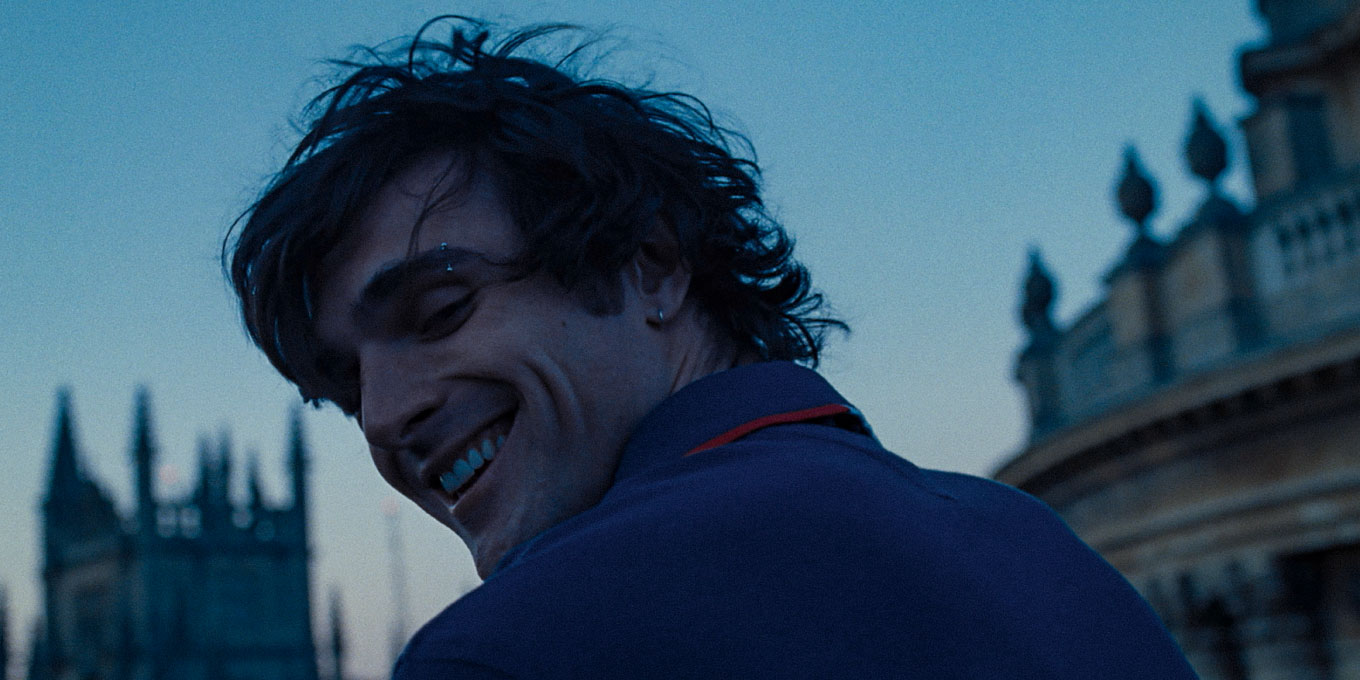
Saltburn
Have you heard the buzz about Saltburn yet? The movie—which follows outcast Oxford University student Oliver (Barry Keoghan) as he befriends the alluring and aristocratic Felix (Jacob Elordi), then spends a life-altering summer with Felix’s eccentric family at their Downton Abbey-esque country estate—is lavish, wicked and unabashedly audacious. It’s the type of movie that will have you immediately chattering with friends as you walk out of a dim theatre because you don’t know how to feel, and it has already inspired a wide range of loud and divided reactions. Whether you love the film or hate it, you won’t be able to stop thinking about it. And British writer-director Emerald Fennell wouldn’t have it any other way.
“Somebody said to me after a screening recently that she felt like I put my hand inside her and started rummaging around her organs,” Fennell says. “[As a filmmaker], that’s the kind of connection you want—and you can’t have that kind of connection with everyone.”
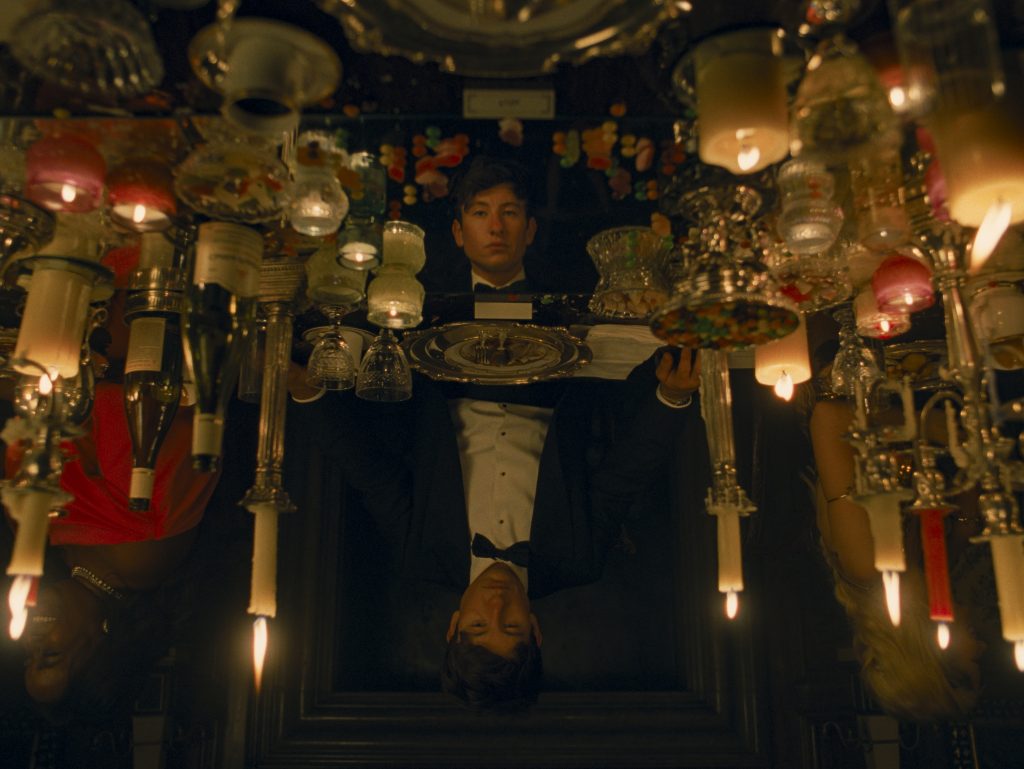 Saltburn
SaltburnSaltburn, which arrives in theatres across Canada on November 22, slots perfectly into place in Fennell’s eye-catching and eyebrow-raising career. As an actor, you may recognize her from roles in The Crown (she played Camilla Shand, the future Queen Consort, in seasons three and four) and Barbie (as the sidelined and pregnant Midge). Behind the camera, she has stepped in for Phoebe Waller-Bridge as the showrunner on season two of the frenetic Killing Eve and, most notably, was the brains behind the also polarizing 2020 revenge thriller Promising Young Woman, for which she won the Best Original Screenplay Oscar. Regardless of whatever it is that she’s doing, if Fennell’s name is attached to something, you can count on it crawling under your skin in some way. We caught up with Fennell to chat about Saltburn, following up Promising Young Woman and why everything about the year 2007 is inherently unglamourous.
Where did the idea for Saltburn first come from?
“It was about seven or eight years ago. I have imaginary friends and imaginary worlds that I go to—that makes me sound like a Manic Pixie Dream Girl and sort of an idiot, but, nevertheless, it’s the truth. I have always daydreamed, and those daydreams have been as intense and as visceral and as real as my real life. That’s just the way I’ve lived my whole life, so it’s never been peculiar to me. There are different worlds, places and people I visit, and one of them was Oliver. The first thing that I knew [about him] was that he was insisting, emphatically, ‘I wasn’t in love with him.’ And the first thing I obviously thought was, ‘Ooh. You’re a liar.’”
So if you’ve had many frequently occurring daydreams, what makes one in particular stand out enough that it serves as a starting point for a film that you’ll eventually share with other people?
“Mostly it’s that they don’t die—at least not right away. Lots of them, for whatever reason, don’t hold [my] interest, or there’s a wall that [I] sort of hit and it’s no longer interesting after that. But Saltburn has been one of those very persistent things that I’ve thought about for so long. And it makes sense that I wrote it during COVID, because it’s a film about not being able to touch; it’s about watching only, and longing. However it started—as an examination of love, desire and the Gothic British country house genre—this really is a film about what happens when you can’t touch people and how that will drive you mad.”
And what made it feel right to follow up your debut feature, Promising Young Woman, with Saltburn?
“It was the scratch that I needed to itch the most. The way that I work is that I kind of just go away and write the thing. Nobody knows what it is. When it’s finished, I’ll show it to people and say, ‘This is the thing I want to make.’ It’s sort of a natural process—it was about now [in the Promising Young Woman cycle] that I realized Saltburn was going to be the thing. Every two years, I start to need to write; the next thing is kind of purging and starts to push at me. I don’t know how to explain it, it’s not strategic—I wish I could be more strategic. There wasn’t any other thing that I wanted to do as much.”
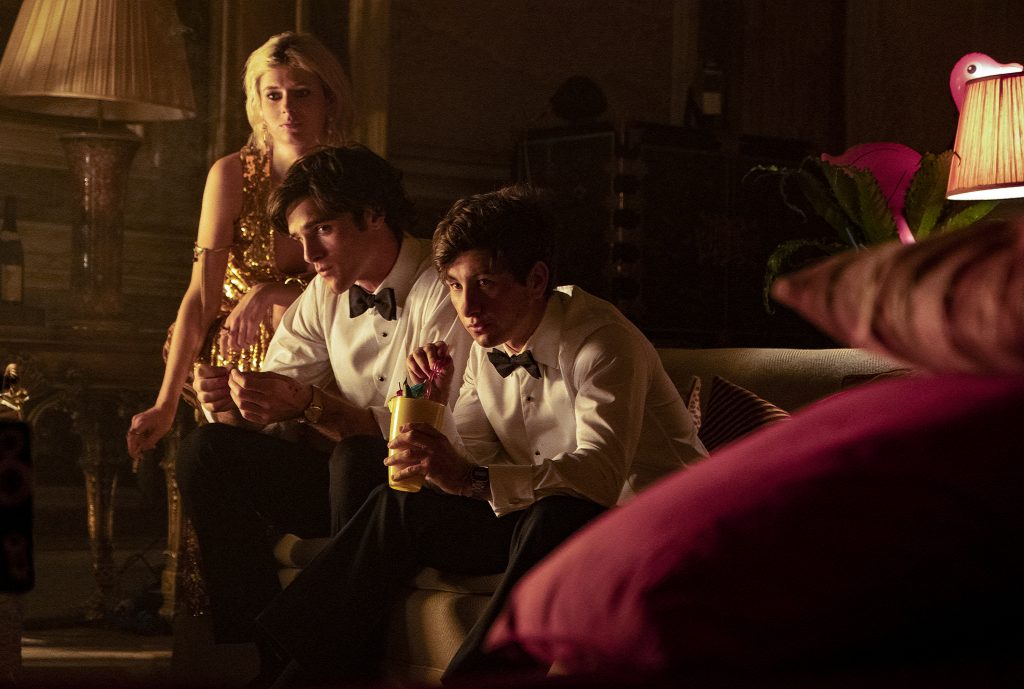 Saltburn
SaltburnSaltburn is set in 2006 and 2007 and you’ve talked about how, part of the reason for that, is that the era automatically undercuts the glamour of everything else about the setting. Why do you think that time period feels so inherently unglamourous?
“Because it was 15 years ago—when we shot the film in 2022, it was exactly 15 years ago. And 15 years ago from wherever you are in time looks awful because we haven’t had enough distance from it. It’s the part of ourselves that realizes we’re not as unique as we thought we were, that we’re all just subject to the same terrible trends. It’s a kind of disassociation—you’re like, ‘Oh no, I remember thinking I looked amazing,’ and, of course, we all had the same terrible back-combed teased hair, the same Livestrong bracelets. It’s humanizing. And when you’re dealing with institutions like Oxford and Saltburn that are kind of timeless, you’ve really got to be specific about the way that humans are in these places. [In the present day], we don’t know what our tells are yet.”
Already, the movie is stirring up a wide range of reactions and emotions, and something else you’ve talked about is how there is no “right” reaction. Whatever someone feels watching the movie is right for them. But when you’re making a film, are you trying to elicit something specific from the audience, or taking into account what they might feel?
“You have to constantly be thinking about the audience. If you’re making a film, you’re literally making something for somebody to watch in a dark room with strangers. That’s the relationship you have. Therefore, in every bit of writing, and in every production, design and cinematography meeting, you’re looking at what you want the audience to feel. What do you want the audience to assume? You have all those questions, and, of course, they’re all kind of technical. It’s about telling the story you want to tell in the most effective way. Whether or not everyone is going to agree that it’s effective or get it in the way you want them to is not something you have any control over. But for me everything is extremely intentional. And if you’re writing a film about desire—a kind of desire that is all consuming—there is a necessary element of discomfort. Uncomfortable, sort of queasy arousal and disgust is part of this desire, so the film itself has to acknowledge that in some way.”
Newsletter
Join our mailing list for the latest and biggest in fashion trends, beauty, culture and celebrity.
Read Next

Here’s What to Pack For Your Next Vacation—So You Don't Have to Stress About It
10 things you need to travel well-prepared, and in style.
by : Lauren Knowles- May 7th, 2024

Fashion
The 12 Best Beauty Looks From the 2024 Met Gala
Fairytale hair! Statement blush! Floral accents!
by : Lauren Knowles- May 7th, 2024

Life and Love
Have You Tried These Goodies for Sexual Wellness Yet?
Consider this your sign that it’s time to improve your sexual well-being—a key part of your overall health.
by : ELLE Canada- May 7th, 2024

